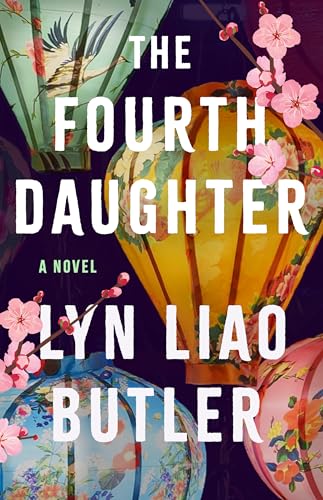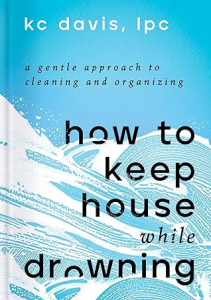
Lyn Liao Butler’s The Fourth Daughter is a breathtakingly emotional family saga that bridges continents, generations, and histories. Set between contemporary New York and postwar Taiwan, the novel unfolds as both a story of personal healing and a deep exploration of cultural identity, motherhood, and forgiveness. Through its rich characters and sensory storytelling, Butler offers readers a moving portrayal of how food, memory, and love can help us reclaim what history once took away.
A Journey of Rediscovery
At the heart of the story is Liv Kuo, a rising culinary star in Manhattan whose life is derailed after a traumatic shooting at her restaurant. Struggling with severe anxiety and unable to step outside her apartment, Liv’s world collapses inward until a call from her beloved grandmother, Ah-Ma (Yi-ping), summons her back to Taiwan. Ah-Ma is now 86 and determined to find her long-lost fourth daughter, taken from her as an infant more than sixty years ago. The journey that follows is both literal and emotional, as granddaughter and grandmother trace a painful family history shaped by superstition, war, and survival.
Through alternating timelines, Butler reveals the heartbreaking reason behind Ah-Ma’s lifelong search. During Taiwan’s martial law period, Yi-ping’s husband gave away their fourth daughter under the cruel practice of shim-pua adoption, in which girls were traded as future brides or servants. The superstition that the number four brings misfortune becomes a symbol of how deeply rooted cultural fears can destroy families.
History, Politics, and the Power of Resilience
One of the novel’s greatest strengths lies in Butler’s vivid portrayal of Taiwan during the Kuomintang regime and the White Terror era. She captures the oppressive atmosphere of martial law the constant surveillance, political arrests, and the silencing of dissent with clarity and empathy. Through characters like Ang-Li, a journalist whose wife is accused of espionage, readers glimpse the personal cost of political fear and the impossible choices people were forced to make.
This historical grounding gives The Fourth Daughter a rare depth. Butler doesn’t treat history as mere backdrop but as a living force that shapes the emotional DNA of her characters. The trauma of a nation becomes intertwined with the trauma of a family, showing how political violence echoes through generations long after the events themselves have ended.
Food as Memory, Healing, and Love
As in Butler’s previous works, food plays an essential role in this novel not only as cultural texture but as emotional language. From the comforting bowls of congee that welcome Liv home to the rich, fragrant pork belly that symbolizes tradition and endurance, every dish carries meaning.
For Liv, cooking becomes a path toward healing. After losing her confidence and creative spark, she finds her way back to herself through her grandmother’s recipes. Butler’s descriptions of Taiwanese cuisine are sensual and evocative, inviting readers to taste, smell, and feel the culture that binds the family together.
Chef Wu, Liv’s mentor, delivers one of the novel’s defining lessons when he tells her that she has been “imitating what she thinks Asian food should be.” It is only when Liv begins to cook from her authentic cultural memory that her dishes and her life regain meaning.
Complex Characters, Honest Emotions
Liv’s journey of recovery is portrayed with honesty and nuance. Her panic attacks, isolation, and gradual steps toward healing feel deeply real. Butler avoids easy redemption arcs, instead showing that trauma recovery is messy, nonlinear, and often full of setbacks.
Yi-ping, meanwhile, stands out as the emotional anchor of the book. Her decades-long hope of finding her lost child reflects both unimaginable grief and indomitable strength. She is a woman defined not by what was taken from her, but by her unending capacity to love. Her scenes with Liv are some of the most tender in the novel, bridging generations through empathy and shared pain.
Themes of Forgiveness and Identity
What elevates The Fourth Daughter beyond a simple family drama is its courage in confronting moral ambiguity. When Liv discovers her grandfather’s role in political persecution, the novel poses difficult questions: Can love survive when weighed against guilt? Can we forgive our ancestors without erasing their sins?
Butler offers no easy answers, but her message is ultimately one of compassion. Healing, she suggests, is not about forgetting the past but about acknowledging it fully and learning to carry it with grace.
A Few Imperfections Amid Great Beauty
While the dual timeline structure enriches the novel, it occasionally causes pacing issues, with certain middle chapters feeling repetitive. The romance subplot between Liv and Simon is sweet but underdeveloped compared to the emotional richness of the main storyline. These, however, are small distractions in an otherwise beautifully told narrative.
Final Thoughts
The Fourth Daughter is a triumph of emotional storytelling and historical awareness. Lyn Liao Butler has crafted a novel that honors both the personal and the political, showing how the wounds of the past can shape and sometimes heal the present. It is a story of courage, forgiveness, and the power of women who refuse to surrender to silence.
For readers who love multigenerational sagas filled with cultural texture, heartfelt emotion, and a touch of mystery, this book is an unforgettable experience.
Buy the book here: https://amzn.to/4h0WeSZ


